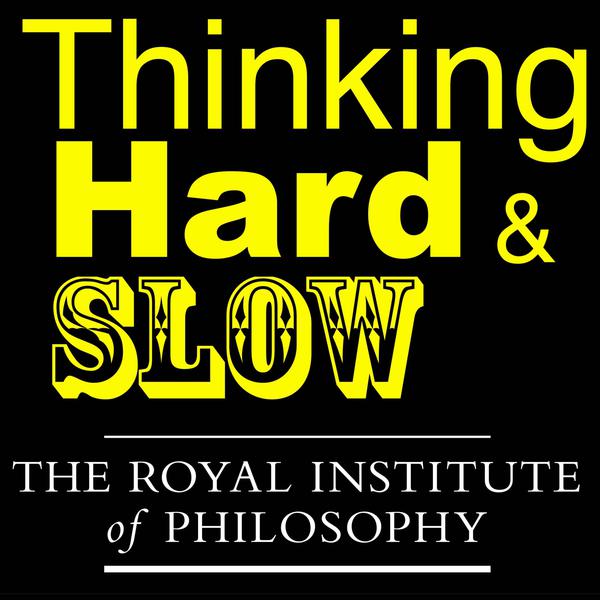
Thinking Hard and Slow
The Royal Institute of Philosophy
From the Royal Institute of Philosophy
- 1 hour 27 minutesConservation as a Method of Remembering (and forgetting) - Erich Hatala Matthes
In this episode, Erich Matthes navigates questions of conservation, and how some easily overlooked aspects of conservation can render its relationship with remembering more complex than it initially appears.
Part of TRIP's London Lecture Series 2024-25, on Remembering and Forgetting.
20 March 2025, 2:00 pm - 1 hour 28 minutesForgiveness: Do we need it? - Lucy Allais
In this lecture, Lucy Allais considers the reasons philosophers have given for thinking that forgiveness is puzzling, and argue that they are key to understanding why we need it – but also why we don’t always have to forgive.
Part of TRIP's London Lecture Series 2024-25, on Remembering and Forgetting.
12 March 2025, 5:00 pm - 1 hour 28 minutesHow We Remember and Forget Online; Alessandra Tanesini
In this talk Alessandra Tanesini explores how Social Networking Sites, especially Facebook, act as platforms where memories can be shared, individuals memorialised, and where at times some feel shunned and forgotten. Alessandra delves into the potential consequences of offloading one’s private memories onto public digital platforms .
Part of TRIP's London Lecture Series 2024-25, on Remembering and Forgetting.
24 February 2025, 3:00 pm - 1 hour 28 minutesRemember Who You Are: Personal Identity and Memory; Presented by Marya Schechtman
We all have treasured memories, but what, exactly, is it that makes them so valuable to us? In this talk, Marya Schechtman explores this question, proposing that one source of value is the role such memories can play in constituting and maintaining both personal identity and intimate social relationships. But what are the implications of this, ethical or otherwise, for our practices of remembering?
Part of TRIP's London Lecture Series 2024-25, on Remembering and Forgetting.15 January 2025, 5:00 pm - 1 hour 25 minutesTrauma, Emotion, and Memory; Presented by James Dawes
How does memory help some people grow after trauma? Post-traumatic growth (PTG) is a term which has been extensively studied by psychologists for the past 30 years, but also represents a new version of an ancient idea present in theology, philosophy, and cultural narratives – namely, that great good can come from adversity and suffering. In his talk, James Dawes explores the role of memory in PTG. How should trauma be remembered?
Part of TRIP's London Lecture Series 2024-25, on Remembering and Forgetting.6 December 2024, 2:00 pm - 1 hour 21 minutesThe Importance of Forgetting; Presented by Rima Basu
Welcome to the London Lecture Series 2024-25! This year our talks focus on questions surrounding the theme of "Remembering and Forgetting."
In this first talk of our latest series, Rima Bisu explores the important role forgetting plays in facilitating and protecting moral goods, such as forgiveness and privacy. Forgetting plays an indispensable role in our lives. Sometimes we want aspects of our identity to be forgotten, and there is a distinctive harm that accompanies the permanence of some content about us. How do we navigate this duty to forget with other important elements of our social and epistemic lives?25 November 2024, 3:00 pm - 1 hour 31 minutesEthnic Inequalities in Experience of Mental Distress; Presented by Kam Bhui
Over six decades of research confirm there are ethnic inequalities in the experiences and outcomes of severe mental illness. The reasons for these differences have been debated, some arguing they meet treatment needs, others say they are manifestations of structural racism.
Kim Bhui shares his views on conceptual confusions, causes, and remedies by drawing on recent Lived Experience Data on compulsory treatment, other research, and campaigns over three decades.
Part of the London Lecture Series 2023-24 | “Madness and Mental Health"3 July 2024, 11:00 am - 1 hour 26 minutesUnderstanding Suicide and Assisted Dying; Presented by Mona Gupta
Can assisted dying for persons with mental disorders be permitted on ethical grounds? What should the criteria be for allowing a person to make the choice to end their own life?
Part of the London Lecture Series 2023-24 | “Madness and Mental Health"3 July 2024, 11:00 am - 1 hour 25 minutesWho Gets to Call Whom Mad?; Presented by Richard Gipps
Richard Gipps discusses the question of who gets to call whom mad, and with what right, and confronts the idea that the world of the 'mad' person is any less valid than that of the 'sane'.
Part of the London Lecture Series 2023-24 | “Madness and Mental Health"3 July 2024, 11:00 am - 1 hour 25 minutesHealth and Disease: Experimental Philosophy of Medicine; Presented by Somogy Varga and Andrew J. Latham
Somogy Varga and Andrew J. Latham report results from a series of experimental philosophy studies which aimed to examine how people understand and deploy concepts of health and disease, and the factors that influence their health-related judgments.
Part of the London Lecture Series 2023-24 | “Madness and Mental Health"3 July 2024, 11:00 am - 1 hour 27 minutesMental Disorder and the Criminal Law; Presented by Claire Hogg
Claire Hogg discusses the theoretical basis for the defence of legal “insanity”. She explorse a number of competing analyses by which the relevance of a defendant’s mental disorder to their criminal culpability may be understood, including counterfactual analyses and capacity models.
Part of the London Lecture Series 2023-24 | “Madness and Mental Health"3 July 2024, 11:00 am - More Episodes? Get the App